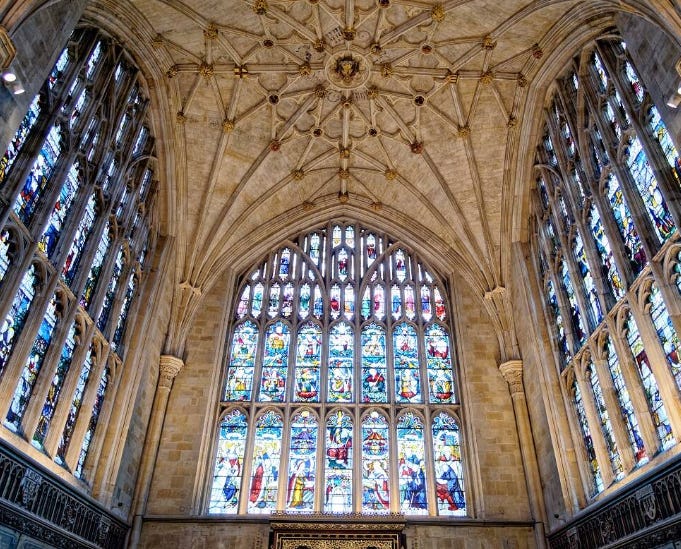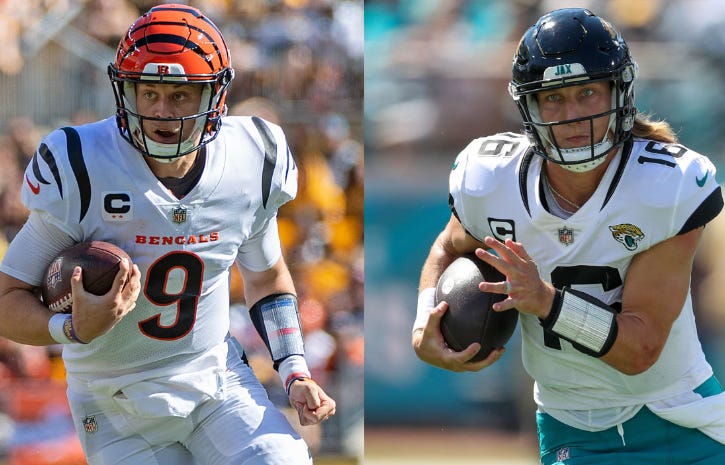The Free Will Paradoxes - Part 1: Consequences
This article series looks into three very big open questions in Christianity:
Why don’t miracles happen all the time?
Why does evil happen?
How does prayer work (how does God think of prayer)?
The answer to these questions is tied in with a new, deeper understanding of free will and God’s priorities. We’ll address these three important questions in subsequent articles, with a fourth part added to address interesting questions about God’s knowledge of the future.
But first, why are these questions important, and why do they need answers? They represent paradoxes in our understanding of God and the world, and the way God interacts with the world. Paradoxes are situations where two apparently true things lead to contradictions of some sort.
For some people of faith, paradoxes are to be swept under the rug, or labeled as “unknowable mysteries.” Christianity is not that way. We embrace paradoxes because they lead us to a deeper understanding of the truth, and truth about God is there to be discovered.
God is logical and has made Himself knowable, at least in part. Just as natural laws have a certain mathematical and logical beauty to them, so the knowledge of God has intricate, self-reinforcing structure to it, with surprising beauty and depth.

Paradoxes such as those listed above may seem like just small, dirt-covered knobs of rough stone. But with study and thought, the confusion can be shoveled away to uncover sweeping arches in the mansion of the knowledge of God. The study of Jesus Christ is never in vain.
For example, it took us almost 300 years to fully define the nature of the Trinity, because at first there were paradoxes involved. (Is Jesus fully man, or fully God? How can sinful flesh and God inhabit the same space? Is the Spirit of God a Person, too?) Once resolved, though, we come to a deeper understanding of God, as reflected throughout all of Scripture, even in Genesis (“Let Us make man in our own image”). And we are even surprised by the beauty of what is found:
If God is Love, and that is a foundation of His character,
then how could He be love in the eternal past,
before the Universe existed,
when there were no objects of love in existence?
The answer lies in the solved paradox, the doctrine of the Trinity…
God is Love even when there was nothing else,
because love existed between the Persons of the Trinity.
Without the paradox of the persons of Christ and the Holy Spirit, we may not have come to this beautiful truth that tells us more deeply how God is Love. Paradoxes lead us to deeper truths.
Another reason these questions, these paradoxes, are important is that they can be stumbling blocks. If these questions are not answered satisfactorily, then some sincere Christians can find themselves in a place of doubt. Many parts of our culture are ready to pounce on such paradoxes in order to convince Christians that their creeds are flawed. Some fall away from the faith because of these perceived contradictions. And so, for some, these questions are of eternal import. Resolving them will save souls.
For these reasons, the resolution of Christian paradoxes is of vital importance!
Before we begin, we should note where we start. This article series is not intended as a direct argument, by itself, for the existence of God. Nor is it a debate between different religious formulations of God. These and much else will be addressed in great detail in upcoming essays, and are already discussed by many writers more gifted than this one. Rather, this essay presumes the Christian God and the veracity of the Christian Bible. Within that framework, there are paradoxes stemming from the three questions above about miracles, evil, and prayer.
The purpose of this article series is to not just resolve these paradoxes, but to reveal a deeper beauty of understanding God and our interactions with Him that comes form the resolved paradoxes.
Part 0: Background Foundational Concept - A New Way to Look at Free Will
We live in a universe in which we clearly have the freedom to make choices as independent people. We are often driven by winds of emotion, social pressure, and other influencers; but with some concentration we can make truly independent choices, and we do so every day. Our experience confirms this. For instance, you can choose to stop reading this essay right now, perhaps because you do not believe in free will. For those that remain, I offer a small sampling of the vast Scriptural evidence of free will from Scripture.

Moses, at the end of his ministry, spoke God’s message to Israel with a dramatic background. He had Israel stand on two different mountaintops representing the different consequences of choice. One peak represented the choice of obedience; the other represented the choice of rebellion. He encouraged them, individually and corporately, to choose obedience and blessings over rebellion and curse:
See, I am setting before you today a blessing and a curse— the blessing if you obey the commands of the Lord your God that I am giving you today; the curse if you disobey the commands of the Lord your God and turn from the way that I command you today by following other gods, which you have not known.
-Deuteronomy 11:26-28
Paul affirms free will in more positive terms:
Each one must give as he has decided in his heart, not reluctantly or under compulsion, for God loves a cheerful giver.
-2 Corinthians 9:7
It makes no sense for God to either bless us or curse us for our actions unless we have some level of free will. Punishing a robot for its actions is nonsensical.
Also, the Bible clearly states numerous times that God want to enter a love relationship with us. It even says “God is Love.” Love simply cannot exist without some level of free will. If you doubt this, go up to a friend of yours and demand them to love you.
Likewise, sin cannot exist without free will. A lion that takes over a pride often kills the offspring of the previous male pride leader in order to free up the females for mating and to ensure his genetic legacy. A lion is clearly not sinning in doing this.
But if Mike Brady had killed stepdaughters Marsha, Jan, and Cindy, it would have been a sin (and probably the season finale on the gritty Brady Bunch HBO reboot). The difference between a lion and Mike Brady is that Mike has rational free will and awareness of moral norms. And because sin is such a key aspect of Christianity (it is the cause of the Cross), one cannot have coherent Christianity without also acknowledging widespread free will.
Most Christians affirm free will, but in this series we will look deeper into it. There are levels and structure to free will. I promise you, the destination is worth it. But first, an illustration.
Imagine a universe that is quite different from our own:
Jimmy finds himself wobbly as he stumbles from the bar after his eighth Old Milwaukee Light. He falls into the front seat of his Camaro, and within a few short minutes, he succeeds in turning the car on.
The empty streets are forgiving to his 15 mph swerves, but he knows the highway will be less so. As he accelerates to 70 mph and merges into traffic, he fancies that the fear in the back of his mind is a sobering factor.
Jimmy miscalculates a curve in the highway, and overcorrects into the median. He comes out of the dewy grass into the oncoming lane going over 60 in the wrong direction. A cement truck driver going 70 but in the oncoming lane direction finds himself with under half a second of reaction time and a tremendous amount of momentum. There will be a horrific head-on collision.
But then, one-fortieth of a second before the lethal impact, an angel appears between the Camaro and the cement truck, supernaturally stopping both of them with no discomfort to the drivers. Standing in the space just four feet across between the vehicles, the angel gives a quick nod to the cement truck driver, who nods back. Both raise an eyebrow at Jimmy, who sheepishly gives them a lopsided grin, his hands up in embarrassed admission.
Jimmy and his car are teleported home, and the cement truck drives continues on his way.
In this other hypothetical universe, the negative consequences of free will are always miraculously canceled out. You can sin or make mistakes or make dumb decisions, but the consequences of these will always be deleted and corrected by angelic intervention.
What would be the consequences of living in this universe? Clearly people seem to have free will, because they can choose what they do. But every negative consequence is taken away. Jimmy clearly had the intellectual choice available to him, whether to drive drunk or not. He could have chosen differently. But with the knowledge that there could never be a real consequence of his choices, what do his choices even mean?
Without consequences, free will is practically meaningless.
If what you do literally does not matter at all, then you effectively do not have free will. Without feeling consequences, you are not an independent agent, even though you have the ability to choose.
In the NFL, an athlete sometimes gains the status of Free Agent. When this person has Free Agency, he can choose which team to play for. If he chooses to play in Jacksonville, then that is where he will go. This player has what philosophers call “agency,” the ability to choose and change your own path.
Now imagine that a team owner told another player that he could choose whatever team he wanted to go to. That player would begin weighing all the options, and get excited about all the opportunities for a bigger payday and a new city to live in. But after the player chose Cincinnati, the owner tells the player, “That’s an interesting choice. But you will be staying right here. The only choice we are willing to honor is if you stay here.” The player had the right to choose whatever he wanted, but that choice had no consequence. In that case, did the player really ever have agency? Did that player have a free will of where to play?
Thus the ability to choose is only part of free will. Without the consequences of choice, positive or negative, true free will does not exist. This is a key point: Free will consists of two things: choice and consequence. Without both, you effectively do not have free will, or at least much less than if you have both.
Total Free Will = Freedom of Choice + Consequences
I encourage you to chew on this. It’s a different way of thinking about Free Will, but it leads to powerful insights. For instance, if God cares about free will, but Him answering a certain prayer of yours negates consequences of your actions, would a miraculous answer increase or decrease the free will God allows or creates in the Universe?
In the next article of this series, we will see how Total Free Will helps resolve paradoxes related to why miracles are somewhat rare. I hope you choose to mine these paradoxes further with me.










